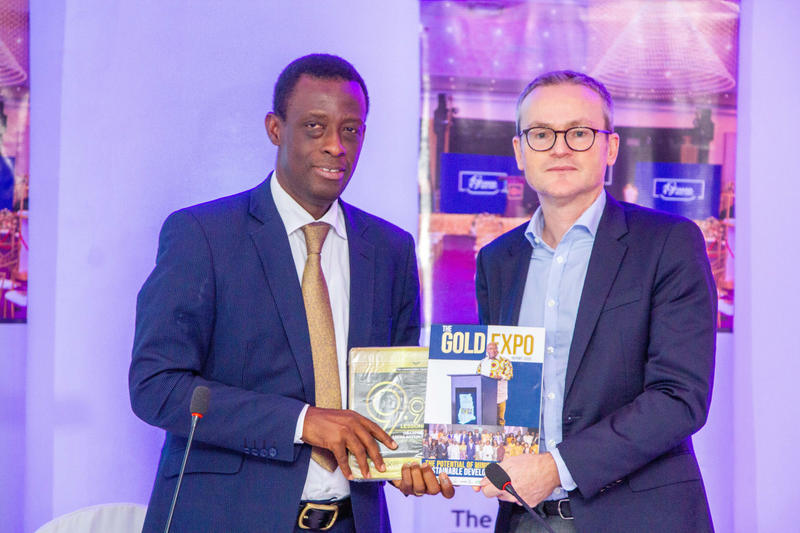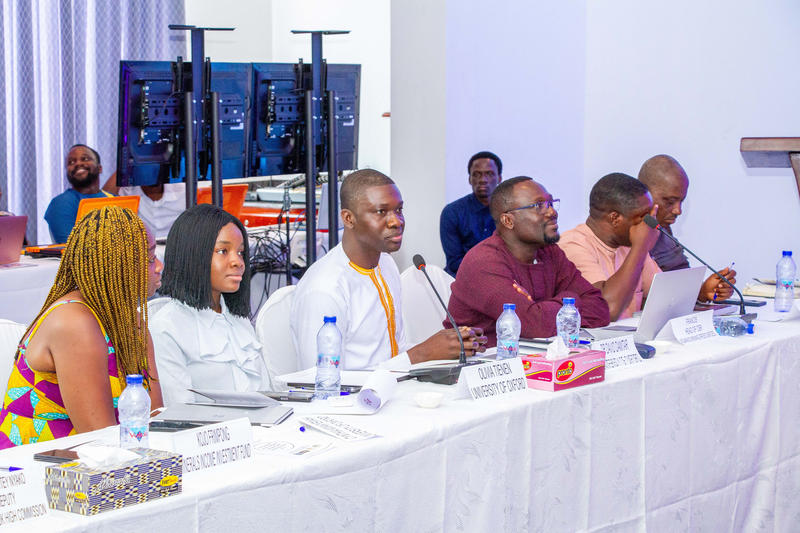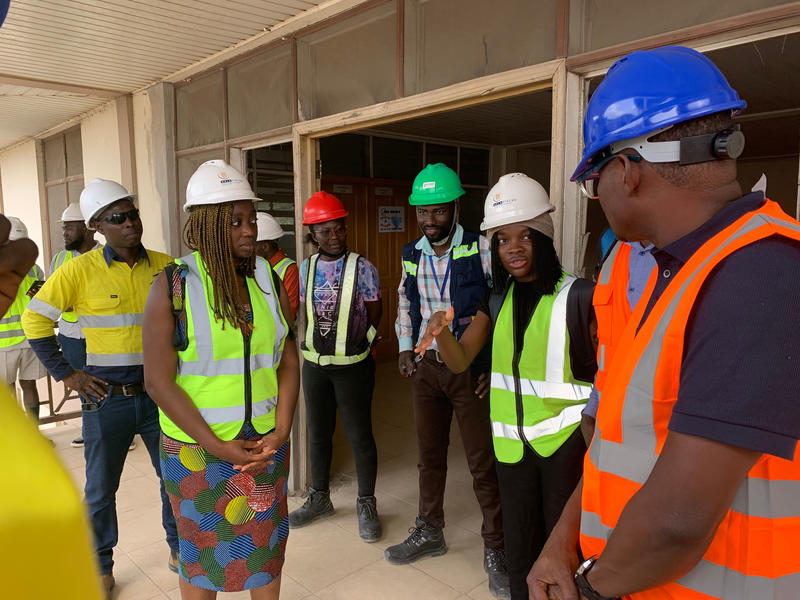The African Studies Centre is always exploring innovative ways to partner with African actors to help address the increasingly complex challenges – political, economic, social and environmental - facing the continent. In doing so, we seek to ensure that African-based solutions to these challenges are at the forefront of what we do. In December 2022, we cooperated with the Ghanaian government agency Ghana Gold Expo Foundation in organizing a landmark Strategic Mining Workshop, focusing on the challenges of ensuring effective Corporate Social Responsibility (CSR) in Ghana’s industrial gold mining sector. As a historian of mining in central and southern Africa, my work has focused on the exploitative nature of colonially connected capitalist mining, its historical failure to share the benefits of mineral wealth with mine workforces, communities and nation-states, and its negative social and environmental effects.

Western Regional Minister Hon. Kwabena Okyere Sarko-Mensah and ASC Director Miles Larmer
While Ghana’s gold mining sector has been subject to criticisms in these respects, the industry and the country’s government are seeking to improving its Environmental, Social and Governance (ESG) practices. This workshop accordingly brought together representatives of many leading mine companies and the Chamber of Mines, national and local government representatives, and – to a limited extent – civic leaders from mine-affected communities. I headed a delegation from the University of Oxford which – myself excepted – was composed of Oxford-based African scholars whose research explores the relationship between mine companies, communities and the state in west and central Africa. Oxford’s participation in this event was generously funded by an ESRC Impact Acceleration grant designed to enable Knowledge Exchange Dialogues. David Damtar (Junior Research Fellow in Black History), Cynthia Kwakyewah (DPhil Sociology), Lisa Kwaleyela (DPhil Area Studies Africa) and Olivia Tienin (MSc African Studies, 2021/22) each presented to the workshop on their research. In doing so, they raised concerns about the industry’s CSR policies and human rights record, its specific impact on and historical marginalization of women, and the challenges of effectively defining the ‘community’ that is affected by mine activities – and which should therefore participate in and be consulted about CSR initiatives.

The University of Oxford delegation
The recommendations of the Oxford participants, while critical of mine companies in many respects, were nonetheless well received. The workshop was strikingly open, participatory and transparent, and was broadcast live on Ghanaian TV and social media. Disagreements between the government and the mine companies about the level of mine revenue accruing to the state were aired in a combative but open manner. Underlying such tensions is, however, a continuing and widespread perception that the industrial mining of gold by multinational corporations – as with other minerals across Africa – does not result in sufficient benefits flowing to the communities that live and work in gold producing areas.
To witness this impact first-hand, workshop participants spent the second day of the event visiting mine-affected communities in the towns of Tarkwa and Nkroful, and seeing how CSR activities were being implemented there in the areas of schooling and leisure. While it was impossible in such a short visit to meaningfully assess community receptivity and participation in these initiatives, these visits provided a glimpse into the difficulties faced by companies to meet the expectations of local communities about CSR and the wider (re)distribution of mining wealth. In documenting these complex relationships, Oxford scholars in and around the African Studies Centre aim to facilitate improved understanding of the contested nature of mine relations, both historically and today.

The Oxford delegation visiting a local mine affected community